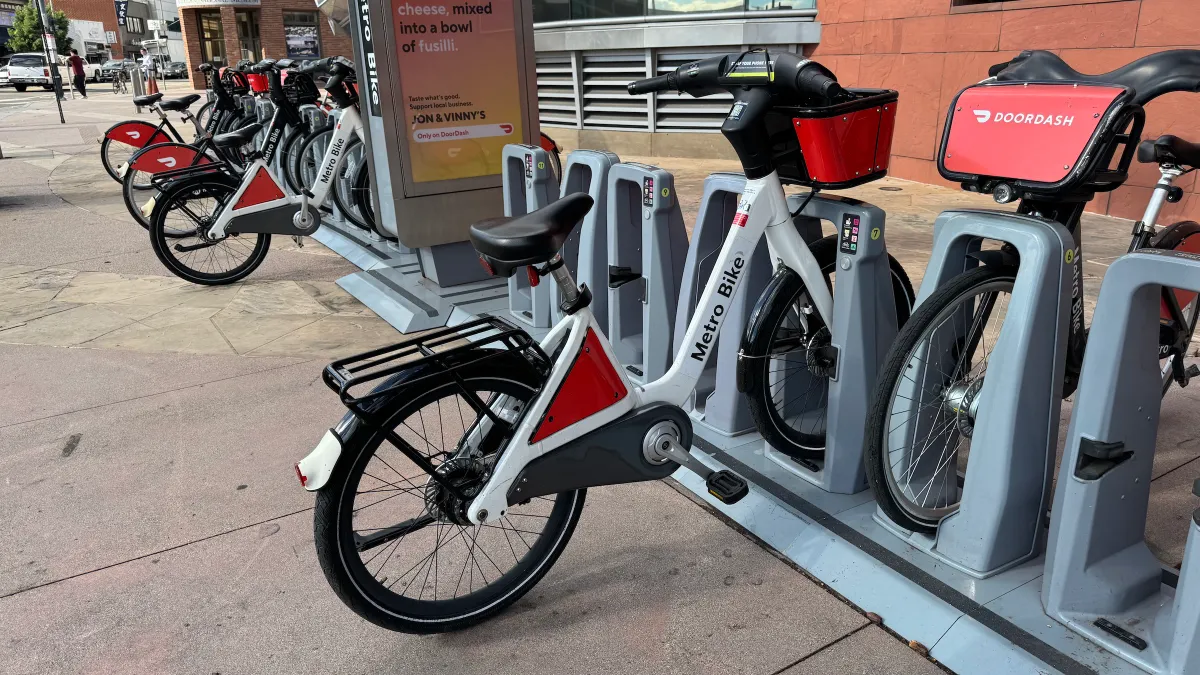Dive Brief:
- California Gov. Gavin Newsom signed seven bills considered bike-friendly by advocates in the last week of September, adding to two bicycle-related laws enacted earlier in the 2024 legislative session.
- Newsom also vetoed two bills supported by the California Bicycle Coalition, or CalBike, that aimed to address excessive speeding by drivers.
- CalBike called the enactment of Senate Bill 960, a Complete Streets law favoring bike, pedestrian and transit infrastructure “a huge victory for advocates of safer streets and active transportation access” in an Oct. 7, 2024 post on its website. Complete Streets are designed to safely serve all users, including pedestrians, bicyclists and transit riders.
Dive Insight:
The League of American Bicyclists ranked California as the fourth most bicycle-friendly state in 2022, but 177 riders died that same year in accidents. A report published by CalBike in September found that the California Department of Transportation, known as Caltrans, proposed to spend less than $240 million on Complete Streets projects in 2024 — less than 25% of the amount recommended by the agency’s staff. In some cases, the state downgraded plans for bikeway projects from a physical barrier separating bike and vehicle lanes to just painted bike lanes.
SB 960 requires Caltrans to commit to four-year targets for Complete Streets improvements to state roads and develop a policy for creating transit-priority facilities and transit stops on state-controlled streets and highways. The law also makes it easier for local governments or transit operators to build Complete Streets infrastructure within Caltrans’ rights-of-way. The law requires Caltrans to include objectives, costs and performance measures for complete streets facilities and transit priority facilities on state roads and highways.
A separate law signed by Newsom and supported by CalBike, Assembly Bill 2086, increases transparency by requiring Caltrans to summarize costs and available revenues for its long-range plans and analyze the financial feasibility of such plans.
Other newly enacted laws considered bike-friendly by CalBike are those that require all e-bikes sold in the state to be equipped with a safety-certified battery and prohibits the sale of devices that modify e-bikes to exceed allowed speed limits for those vehicles. SB 689, another new law, restricts the ability of the California Coastal Commission to prevent local governments from converting an existing roadway to a dedicated bike, pedestrian or transit lane in coastal areas.
AB 2669 prevents pedestrians and bicyclists from having to pay when crossing certain toll bridges in the state, and SB 1216 largely prohibits government agencies from using only pavement markings to alert drivers that bicycles may use the lane on roads with speeds higher than 30 mph. Two other acts allow pilot programs in two counties to establish age limits for operating certain electric bikes.
The governor vetoed two bills that would have reined in excessive speeding by drivers in motor vehicles. SB 961 would have required most vehicles sold in the state, beginning with the 2030 model year, to include a device warning drivers when they exceed the speed limit by more than 10 mph. SB 1509 would have raised penalties for those speeding more than 25 mph over the speed limit on roads with limits at or under 55 mph.












